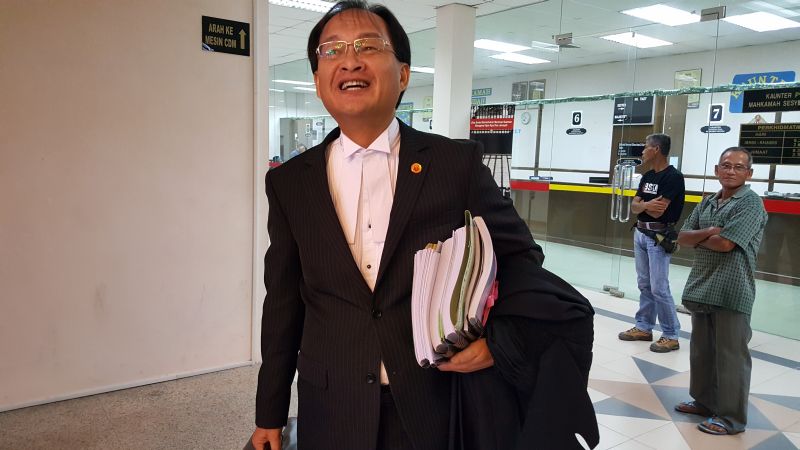KUCHING, February 9 ― The Federal Court agreed today to a full hearing for three Sarawakian Muslim converts who face state-level challenges in their wish to revert to their original religion.
Jenry Peter alias Nur Mudzdhalifah Abdullah, Mohd Syafiq Abdullah alias Tiong Choo Ting and Selina Jau Abdullah had asked if the Sarawak Shariah Court has jurisdiction over apostasy matters or conversion out Islam when the Sarawak Syariah Court Ordinance 2001 has no provision concerning conversion into Islam.
Federal Court judge Tan Sri Suriyadi Halim Omar, who chaired a three-men panel, said the question of law posed by the three applicants required an answer as there have been similar cases nationwide.
“The Sarawak Syariah Court Ordinance is a serious matter and if the legislation does nothing, what about the ordinary people?” the judge said.
Sitting with Suriyadi were Federal Court judges Tan Sri Belia Yusof Wahi and Tan Sri Jeffrey Tan Kok Wha.
The three applicants, represented by lawyer Baru Bian, are suing the Sarawak Islamic Religious Department, the Islamic Affairs Council, the National Registration Department (NRD) and the state government to be allowed to revert to Christianity.
They also asked the court for an order to compel the NRD director-general to change their Muslim names to their original names and their religion from Islam to Christianity in their official records.
The High Court, in 2015, had ruled that it had no jurisdiction to hear apostasy cases.
Last August, the Court of Appeal rejected their application for a judicial review to compel the four respondents to issue a letter of release to them as they are no longer practising Muslims.
The four respondents were represented by state Deputy Attorney-General Saferi Ali and Shamsul Bolhassan.
Later, Baru told reporters that he had met with the late Chief Minister Tan Sri Adenan Satem last year on the need to amend the Sarawak Syariah Court Ordinance.
The lawyer recounted that Adenan had said he would study the issue.
Baru added that the ordinance, like other Islamic ordinances from the other states, is silent on those who wish to exit Islam.
He said there should not be any obstacles imposed on people who want to come out of Islam so long as they have made a statutory declaration they are no longer practising Muslims.
“Our argument is that since they are no longer Muslims, as sworn in their statutory declarations, the Shariah Court has no jurisdiction over them,” he said.



















